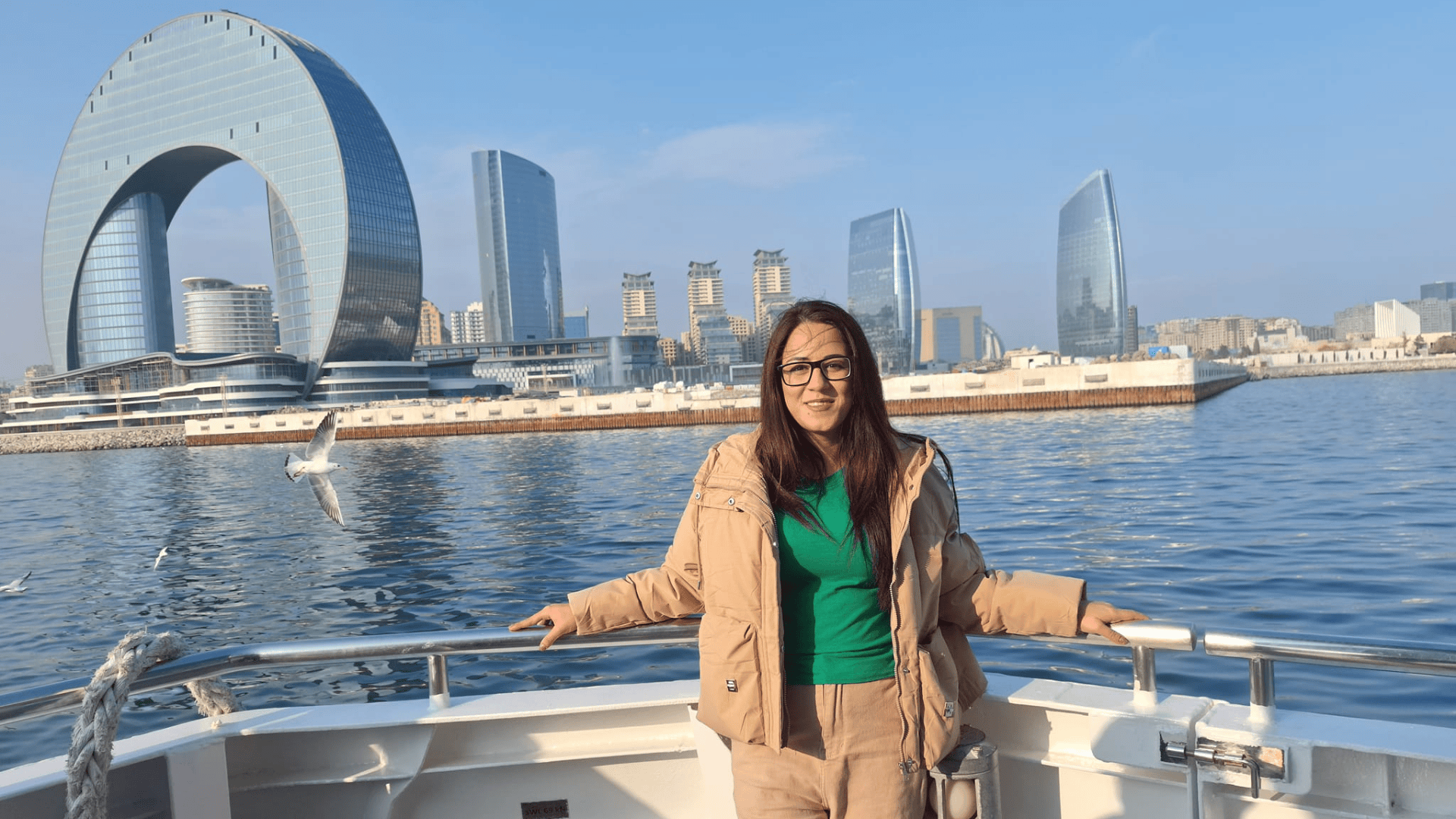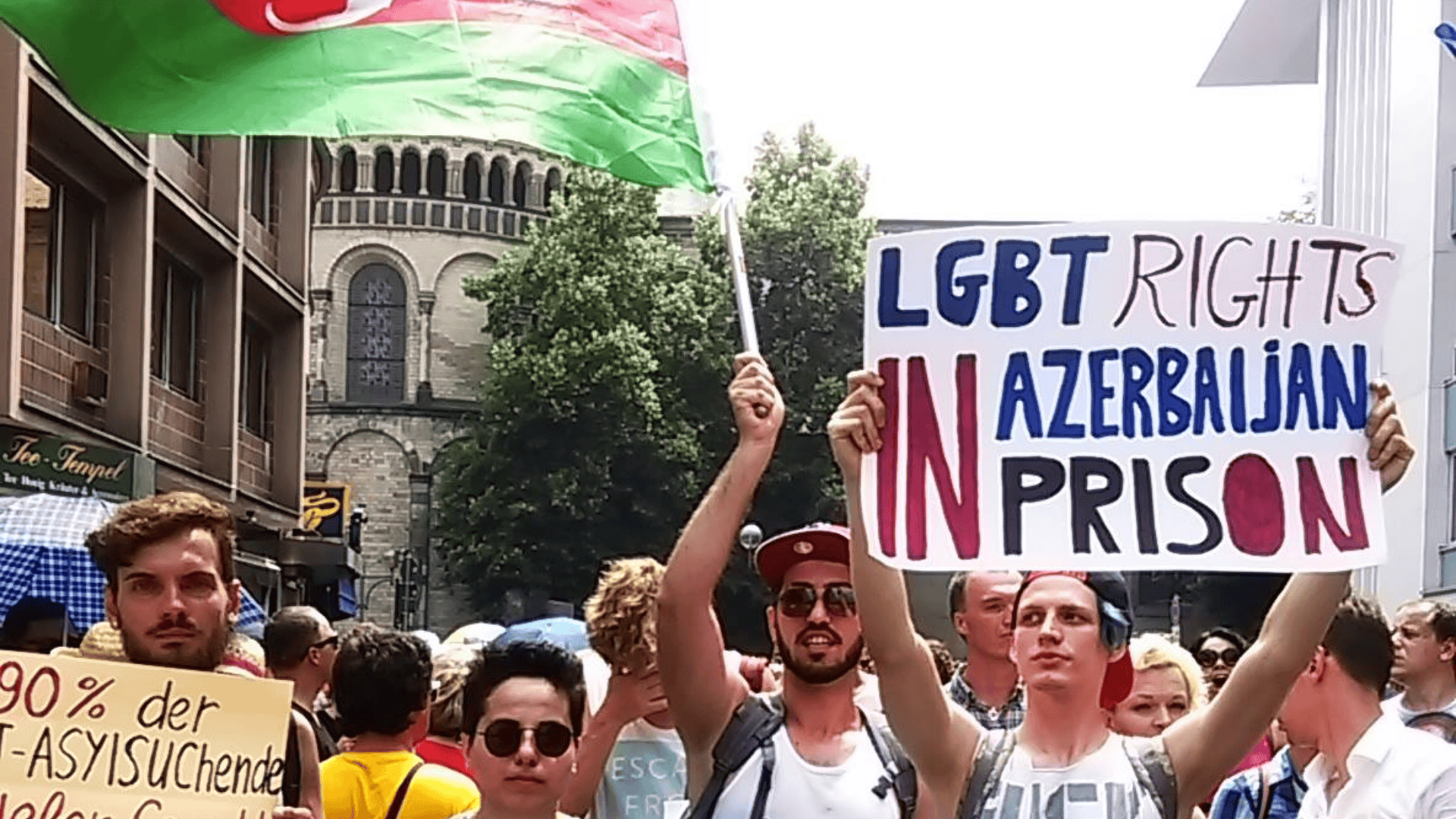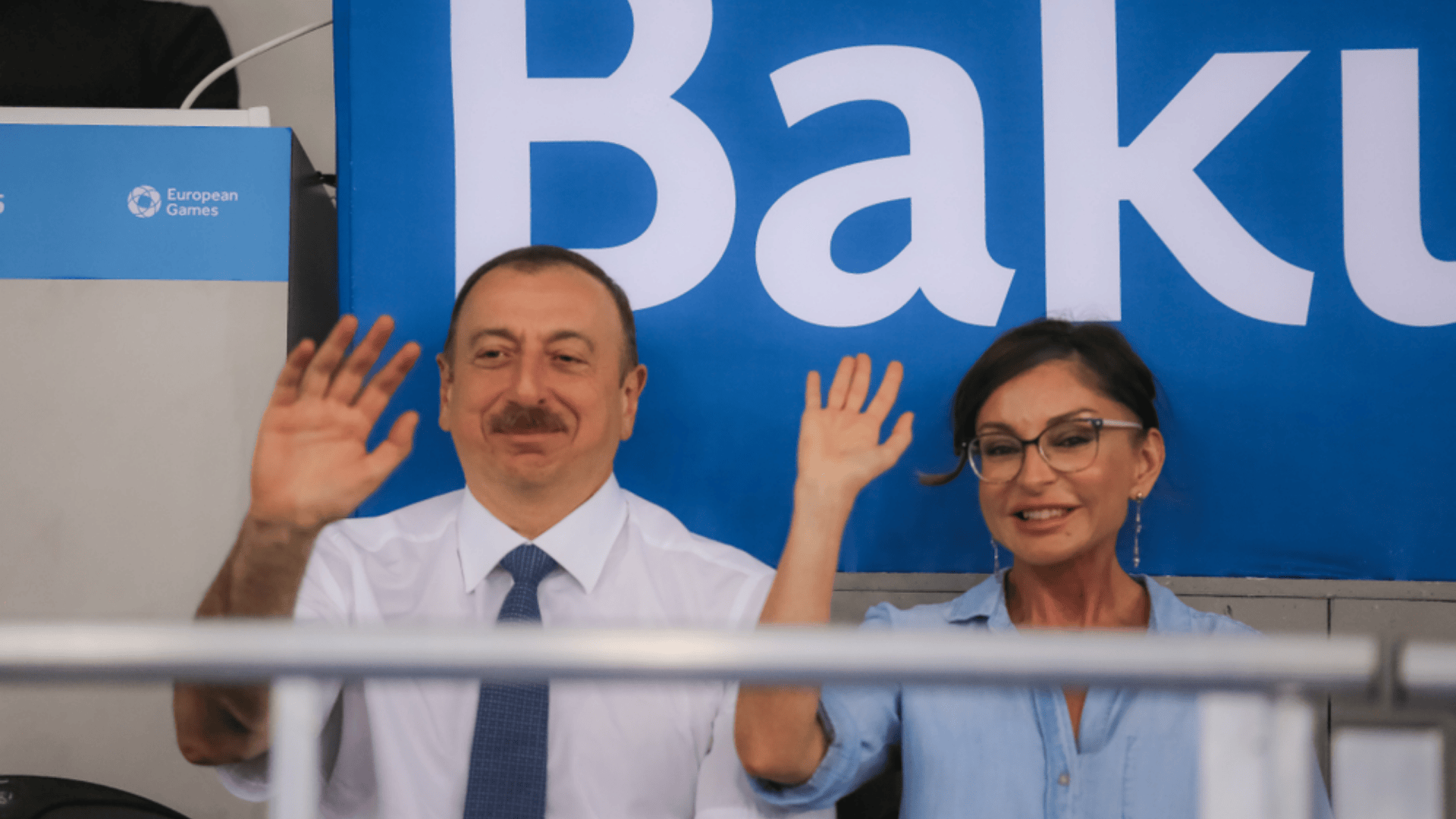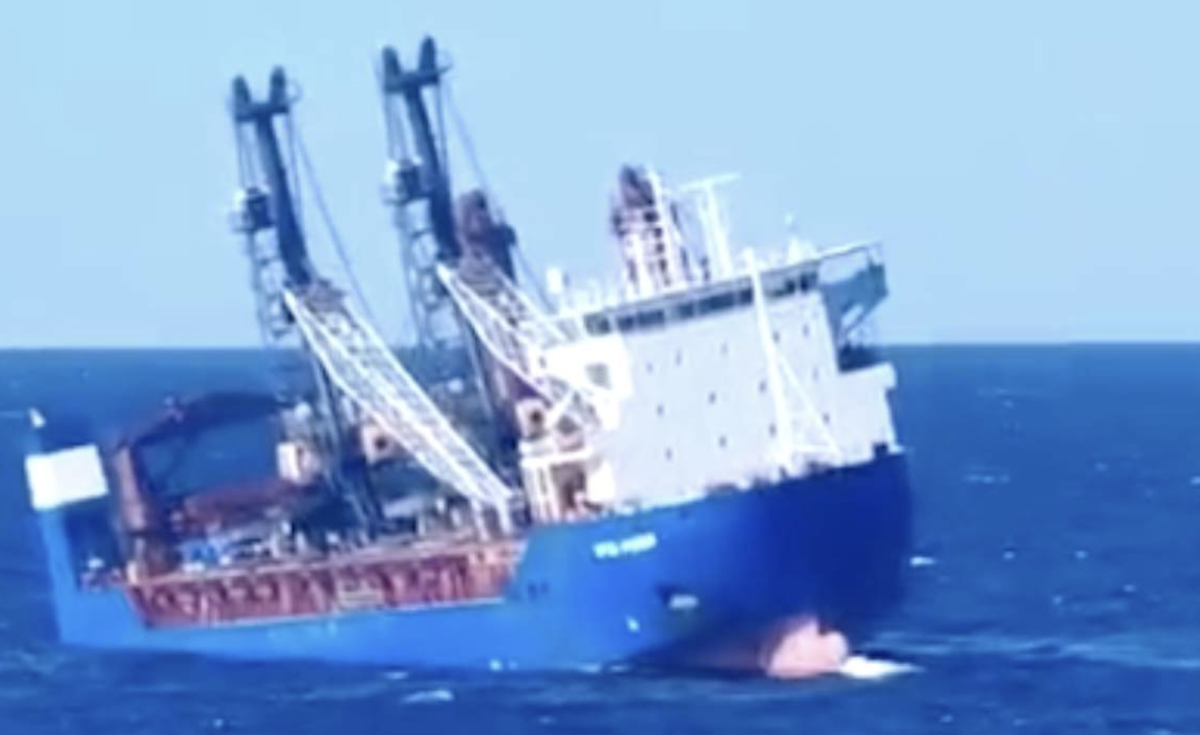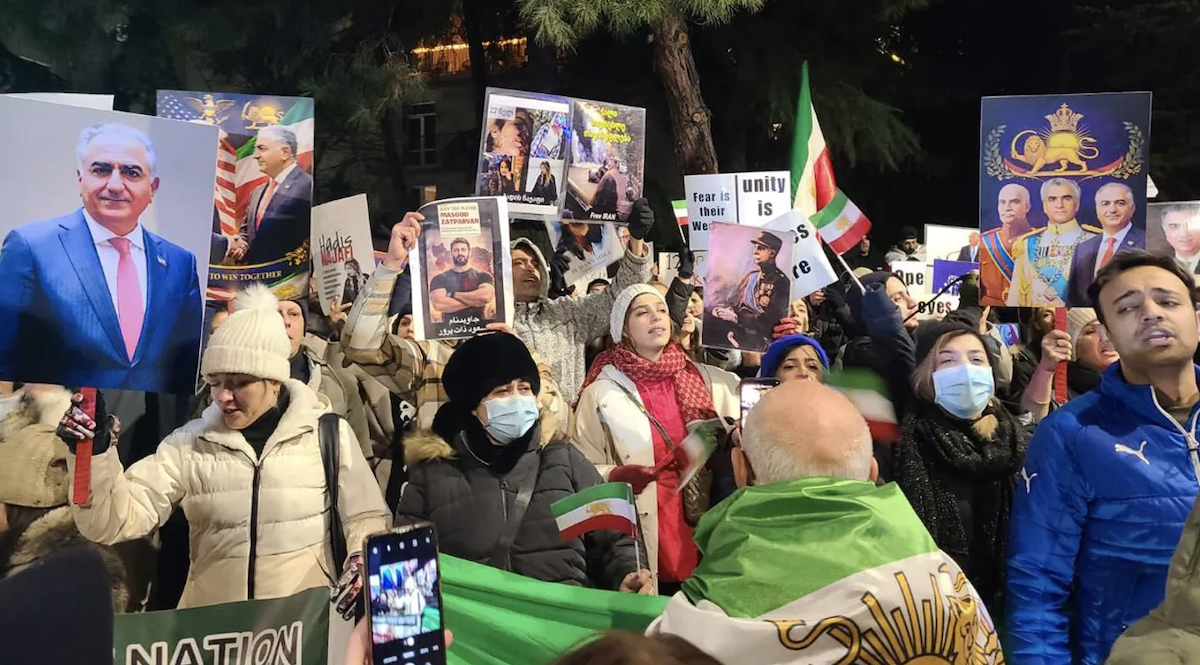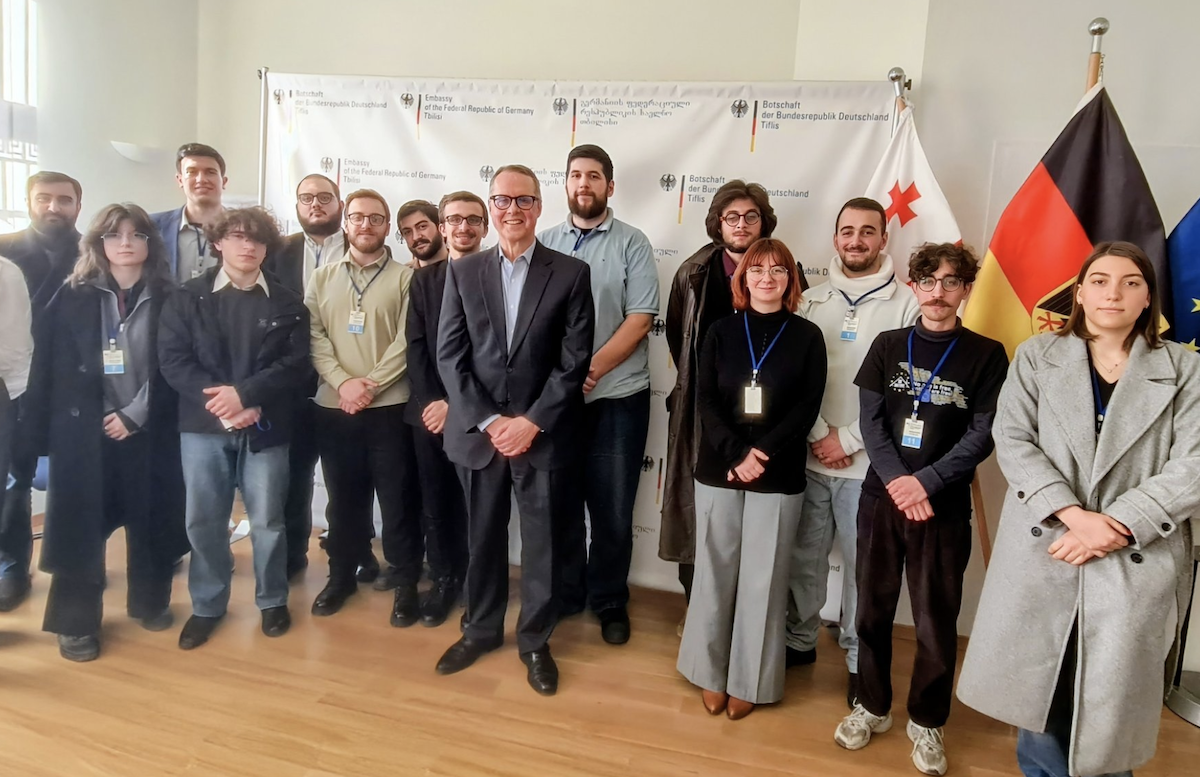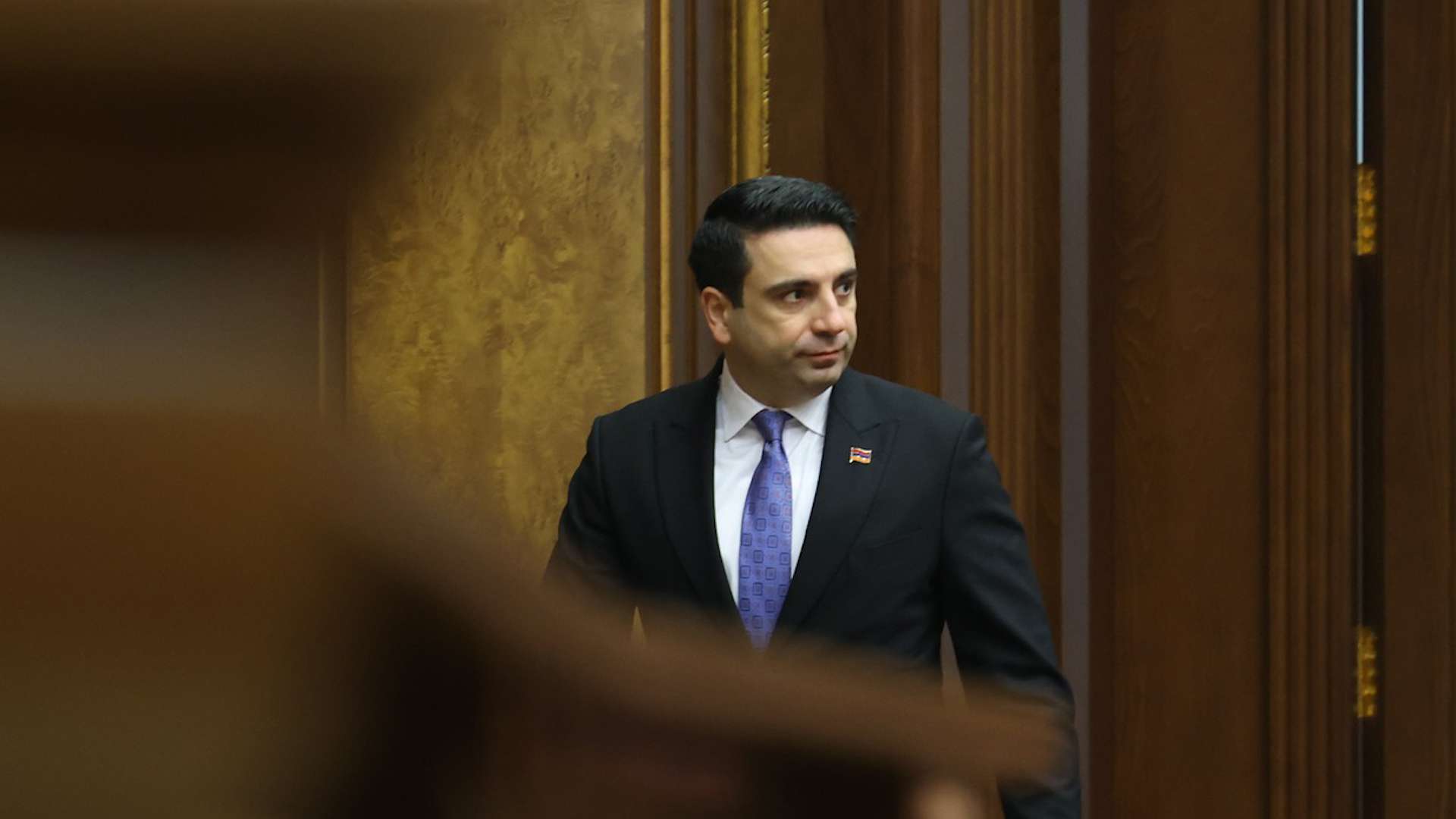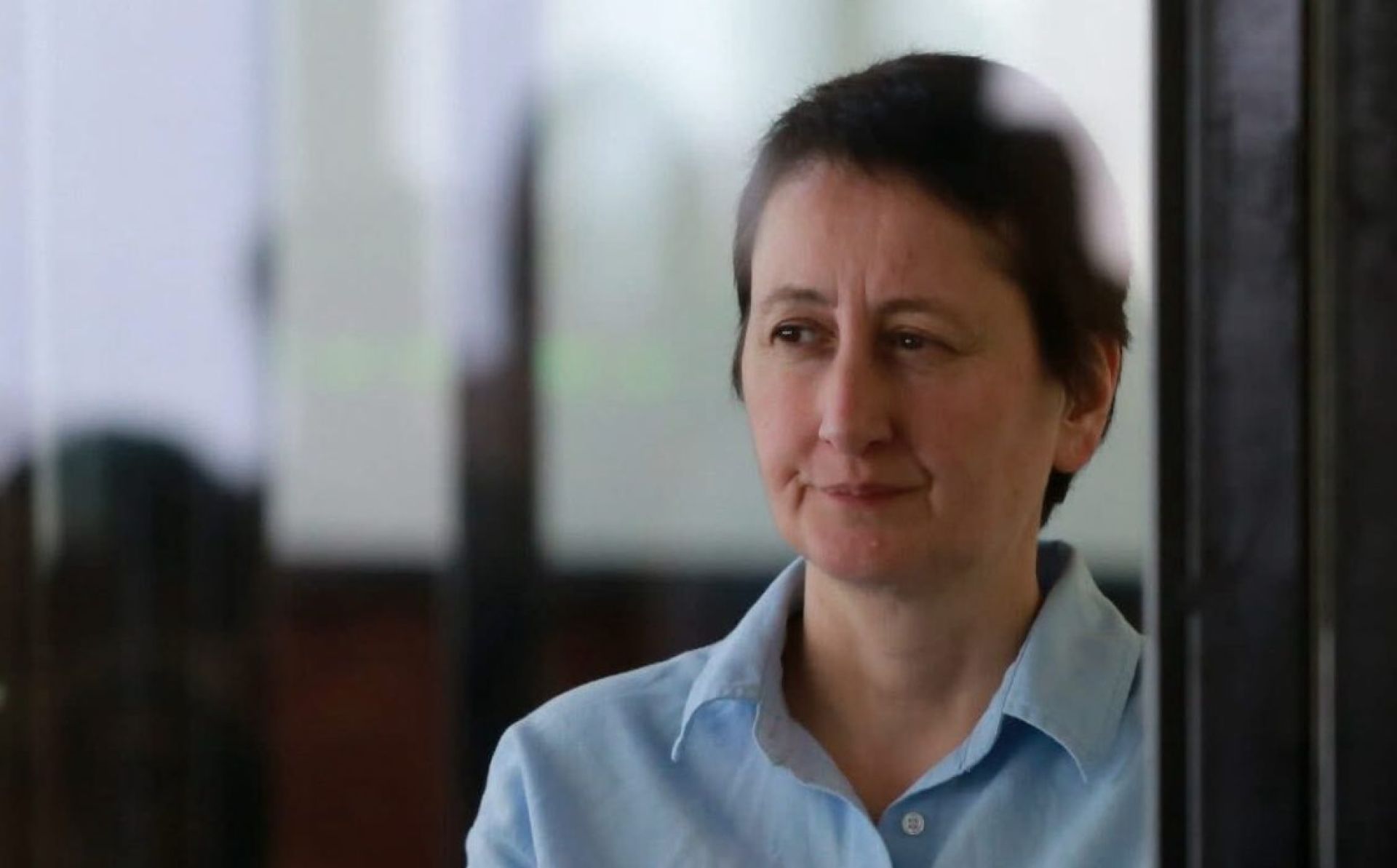Azerbaijan-EU relations: energy, transport, demining and political integration
Azerbaijan-EU relations
Azerbaijan’s relations with the European Union have entered a new phase since the end of the 2020 Karabakh war. In the energy sector, a memorandum signed in 2022 set out the principles of a strategic partnership and envisages boosting the capacity of the Southern Gas Corridor to 20 billion cubic metres a year by 2027.
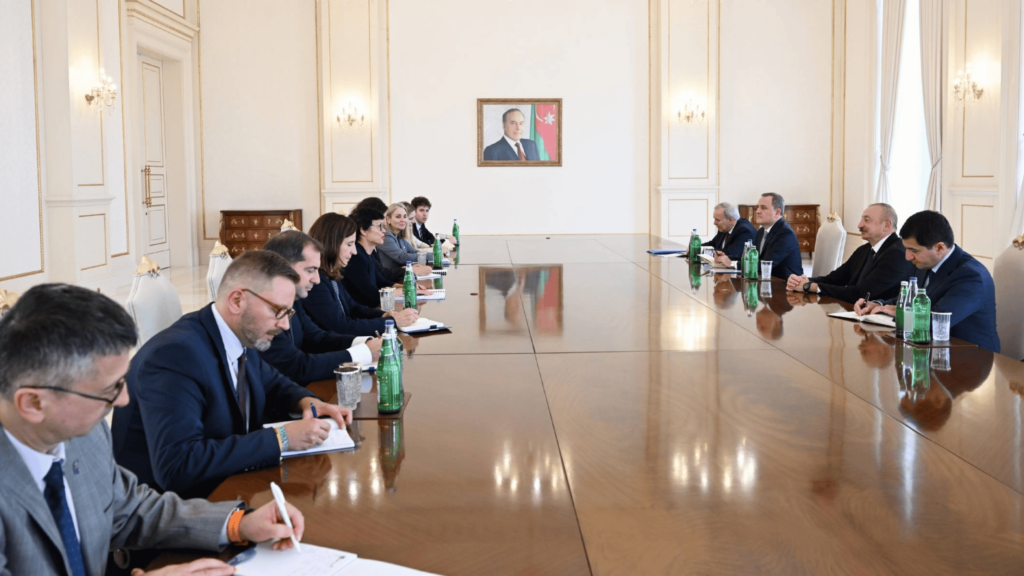
Following the memorandum, Azerbaijan sharply increased gas exports: from 8.1bn cubic metres in 2021 to 12.0bn in 2022. According to official figures, exports to the EU stabilised at around 12–13bn cubic metres between 2022 and 2024 (12.26bn in 2022, 12.39bn in 2023 and 12.66bn in 2024).
European Commission president Ursula von der Leyen said Azerbaijan was a “key partner in efforts to phase out Russian fuel.” President Ilham Aliyev also stressed that Azerbaijani gas is now exported to 10 countries, including eight EU member states.
At the same time, experts note that EU gas demand has been falling since 2022, making the 20bn cubic metre target for 2027 uncertain. Jana Zabanova of the Heinrich Böll Foundation wrote: “Azerbaijan is an important, but by no means the only, partner in Europe’s energy supply.”
Nevertheless, the EU is seeking to secure Azerbaijani gas supplies as well as cooperation on environmental issues, including reducing methane emissions in production.
Transport and logistics
Azerbaijan’s new transport corridors are of strategic importance for Europe. The Middle Corridor — the Trans-Caspian International Transport Route — is seen as one of the most promising routes for moving goods from China to Turkey and EU markets. The route is about 2,500km shorter than the northern corridor and can cut freight train delivery times from China to Europe from 20 days to 12–15.
Amid Russia’s war in Ukraine, interest in the Middle Corridor has grown sharply, as east–west transit through Russian territory remains restricted. Olga Algayerova, head of the UN Economic Commission for Europe, noted: “All EU member states support the swiftest possible development of the Middle Corridor and are considering investment in the project.”
Cargo on this route travels along the China–Kazakhstan–Turkmenistan–Azerbaijan–Georgia–Turkey–Europe line. By mid-2025, the volume of goods arriving in Azerbaijan from Central Asia had risen significantly, and transport along the corridor had accelerated.
Azerbaijan’s proposed “Zangezur Corridor” (linking Azerbaijan, Nakhchivan and Turkey/Iran) could become part of the Belt and Road or North–South initiatives. President Aliyev has called it “a major contribution to the Trans-Caspian route” and stressed that “the Zangezur Corridor has global significance.”
Once operational, the corridor will allow up to 35m tonnes of cargo to be transported across Azerbaijan annually. Last year, transit through the country grew by more than 30%. Investment in the Baku–Tbilisi–Kars railway has been increased (with $100m allocated this year), and new transport networks are being built for the Zangezur Corridor. This is expected to boost flows along the Middle Corridor.
Demining and humanitarian support
The European Union is one of Azerbaijan’s biggest international partners in clearing mines from recaptured territories. In February 2023, the EU and the UN Development Programme (UNDP) provided €4.25m to Azerbaijan’s mine action agency ANAMA under a new project. Covering 20 villages, it is expected to enable the safe return of 33,604 families.
According to UNDP’s head in Azerbaijan, over the past 20 years its projects have helped ANAMA clear more than 850,000 mines, allowing more than 160,500 displaced people to return to their homes. During the European commissioner’s visit to Baku, it was also announced that the EU would continue supporting Azerbaijan’s humanitarian demining efforts.
Official figures show that between November 2020 and September 2025, 227,713.3 hectares were cleared in Karabakh and East Zangezur, with 209,168 mines and other explosives neutralised. Yet large areas still need to be cleared, and experts say scaling up international assistance will be critical.
Political integration and dialogue
Azerbaijan is not seeking EU membership; instead, relations are built on the strategic interests of both sides. The formal basis remains the 1999 Partnership and Cooperation Agreement (PCA), while in recent years new formats of engagement have been under discussion. Talks on an enhanced partnership agreement began in 2017 but have yet to produce a signed document. In the meantime, political dialogue has been strengthened through regular meetings. In February 2025, for example, a phone call between Azerbaijan’s foreign minister, Jeyhun Bayramov, and the EU’s foreign policy chief, Kaja Kallas, underlined the expansion of bilateral ties, stepped-up diplomatic visits and closer security cooperation.
Analysts note that Azerbaijan–EU relations are driven largely by mutual needs in energy and transport. They argue the relationship is shaped more by growing economic interdependence in energy and logistics than by formal political integration.
At the same time, the EU expects progress from Azerbaijan on reforms and human rights, where disagreements remain. Overall, however, both Azerbaijan and the EU prioritise cooperation. Observers believe that mutually beneficial projects — in energy, transport and demining — will continue to develop, but no fundamental political shifts are on the horizon.
Local experts’ perspective
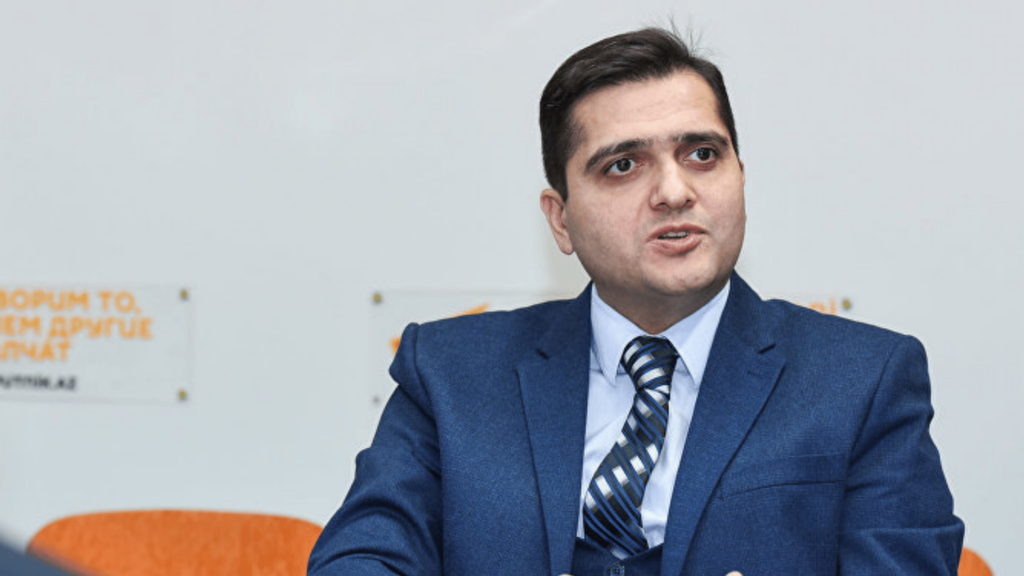
Political commentator Elkhan Shahinoglu says cooperation between Azerbaijan and the EU has deepened in recent years, and Marta Kos’s visit can be seen as a continuation of this trend.
According to him, the restoration of Azerbaijan’s territorial integrity has strengthened the country’s regional role, with key transport routes running through its territory.
“If the Zangezur Corridor becomes operational, it will have strategic importance for Europe, since the ultimate destination for cargo from China and Central Asia is Europe,” the expert noted.
He also stressed that demining in Karabakh is not among the West’s priorities.
“Azerbaijan is spending billions of dollars, but European banks have yet to provide significant funding for this area. Yet demining is not just a regional issue — it is a universal human problem.”
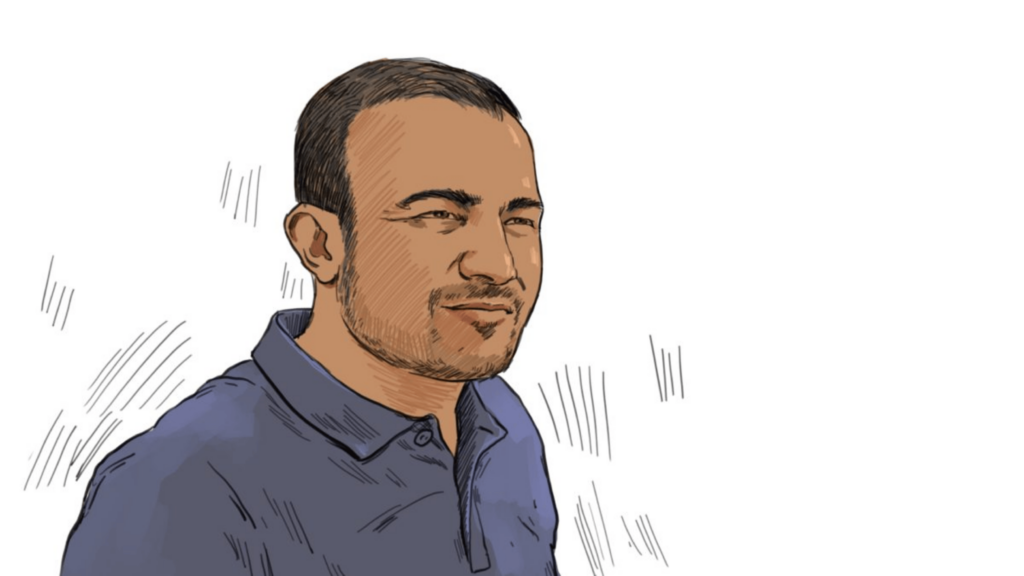
Seymur Hazi, deputy chair of the opposition Popular Front Party of Azerbaijan, takes a different view of the relationship’s trajectory.
He argues that Baku limits cooperation mainly to the economic sphere, while what is needed is deeper political integration:
“We would like relations between Azerbaijan and the EU to develop within the framework of the Action Programme adopted in 2006. That programme set out democracy, human rights, the rule of law and political system integration.
However, the authorities in Baku see Europe more through a Dubai-style lens — as a matter of business and economic partnership.”
News in Azerbaijan










